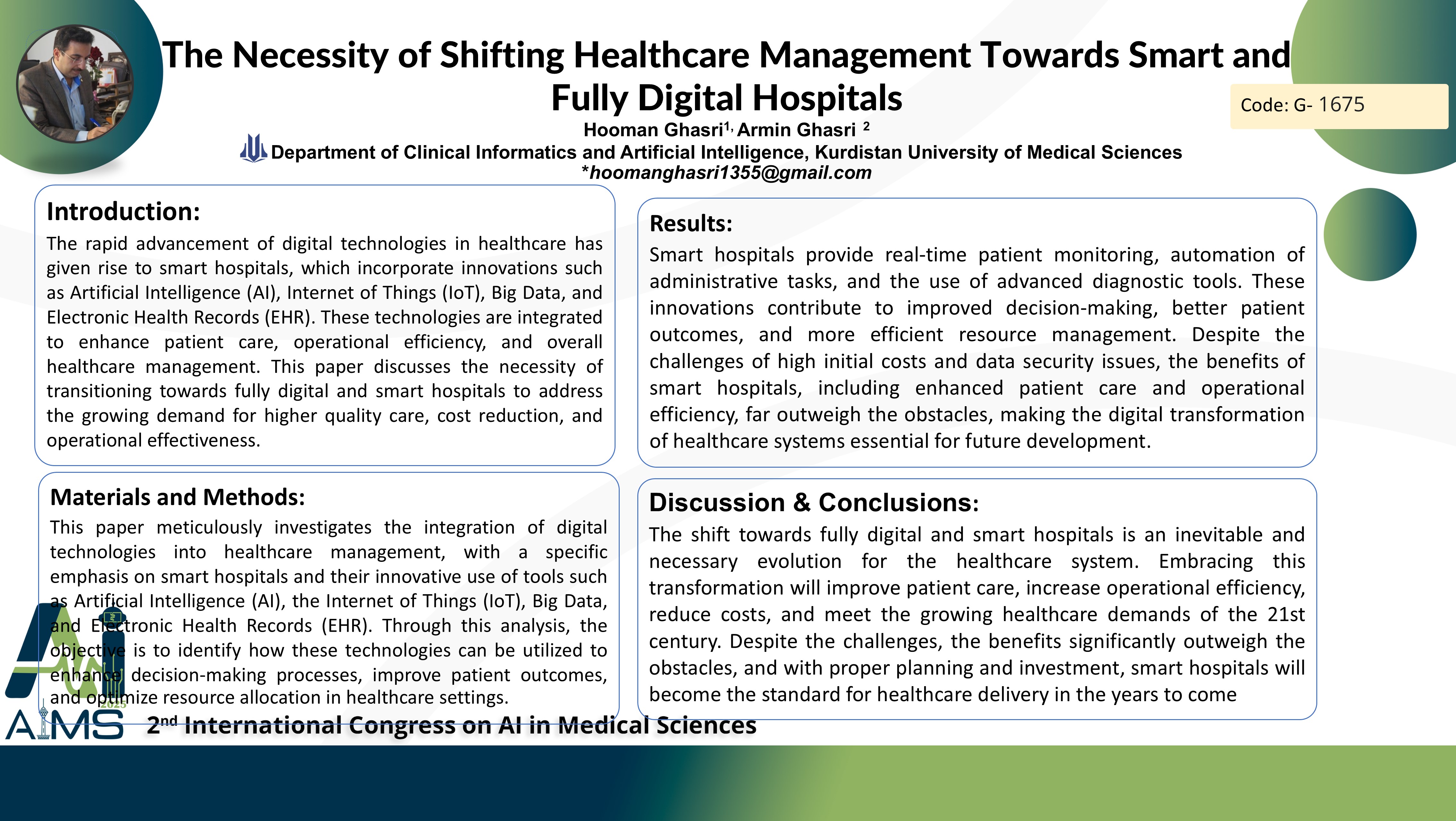The Necessity of Shifting Healthcare Management Towards Smart and Fully Digital Hospitals
Code: G-1675
Authors: Hooman Ghasri * ℗, Armin Ghasri
Schedule: Not Scheduled!
Tag: Clinical Decision Support System
Download: Download Poster
Abstract:
Abstract
Background and Aims: The rapid advancement of digital technologies in healthcare has given rise to smart hospitals, which incorporate innovations such as Artificial Intelligence (AI), Internet of Things (IoT), Big Data, and Electronic Health Records (EHR). These technologies are integrated to enhance patient care, operational efficiency, and overall healthcare management. This paper discusses the necessity of transitioning towards fully digital and smart hospitals to address the growing demand for higher quality care, cost reduction, and operational effectiveness. Method: This paper meticulously investigates the integration of digital technologies into healthcare management, with a specific emphasis on smart hospitals and their innovative use of tools such as Artificial Intelligence (AI), the Internet of Things (IoT), Big Data, and Electronic Health Records (EHR). Through this analysis, the objective is to identify how these technologies can be utilized to enhance decision-making processes, improve patient outcomes, and optimize resource allocation in healthcare settings. Resistance to Change: The analysis also considers behavioral factors that contribute to resistance among healthcare staff towards adopting new technologies. Issues such as discomfort with technological advancements and entrenched organizational cultures that resist transformation are discussed. The importance of fostering an environment that actively supports change is highlighted as essential for successful implementation. Results: Smart hospitals provide real-time patient monitoring, automation of administrative tasks, and the use of advanced diagnostic tools. These innovations contribute to improved decision-making, better patient outcomes, and more efficient resource management. Despite the challenges of high initial costs and data security issues, the benefits of smart hospitals, including enhanced patient care and operational efficiency, far outweigh the obstacles, making the digital transformation of healthcare systems essential for future development. Conclusion: The shift towards fully digital and smart hospitals is an inevitable and necessary evolution for the healthcare system. Embracing this transformation will improve patient care, increase operational efficiency, reduce costs, and meet the growing healthcare demands of the 21st century. Despite the challenges, the benefits significantly outweigh the obstacles, and with proper planning and investment, smart hospitals will become the standard for healthcare delivery in the years to come
Keywords
Smart Hospitals, Digital Transformation, Healthcare Management
